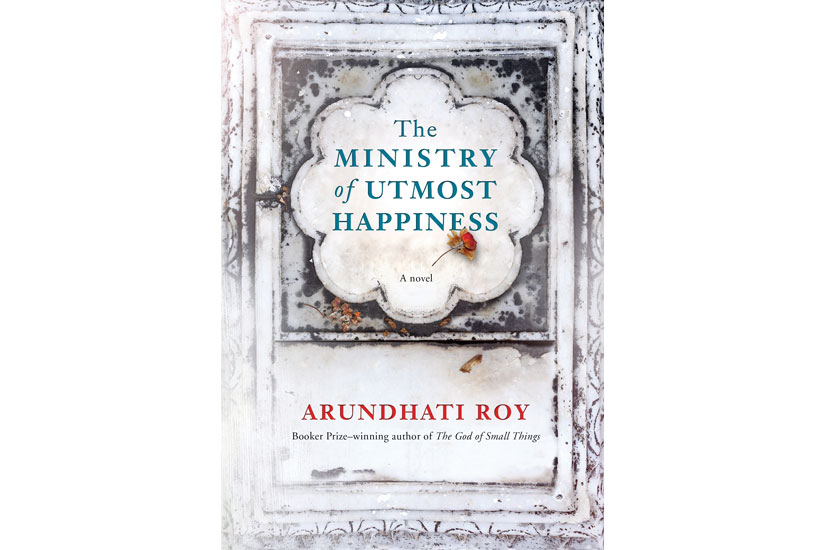When we catch up with Arundhati Roy in Delhi, she is on day 11 of recording the audiobook for The Ministry of Utmost Happiness. “When I write, I hear it in my head; I’ve heard it and spoken it in my head many times, so I’m not experiencing the book any differently,” the Indian author, journalist and activist says with a laugh, adding that she usually gets through about 40 pages a day. “It’s going smoothly, although I trip over a word occasionally or, this being India, you’ll have someone upstairs dragging a sofa and I’m like, ‘Okay!’” Of course, compared to how long Roy has been writing this novel—over 10 years—her sound- booth session is a sprint. This novel is the long-awaited follow-up to her Booker Prize-winning The God of Small Things, which she wrote nearly 20 years ago. “I don’t have a reason for why this book took so long,” she says. “None of the decisions were mechanical. The book wrote itself, almost.”
The novel itself has a similarly leisurely pace—a meandering, lingering look at the interconnected lives of a cast of richly drawn characters in Old Delhi, the action gathering around the finding of an abandoned baby like strands of cotton candy on a stick. “The texture, the language of it all is important,” agrees Roy. “It was important for me to pay my respects to even the minor characters that walk down the narrow lanes. It’s like a city—you can’t rush down them in a fast car.” Not that she wants to be prescriptive about how you consume this novel: “It’s one of those books that keeps changing every time you read it, in different lights. You can read it quickly or slowly or sideways.”
This article originally appeared in the July/August 2017 issue of ELLE Canada.





